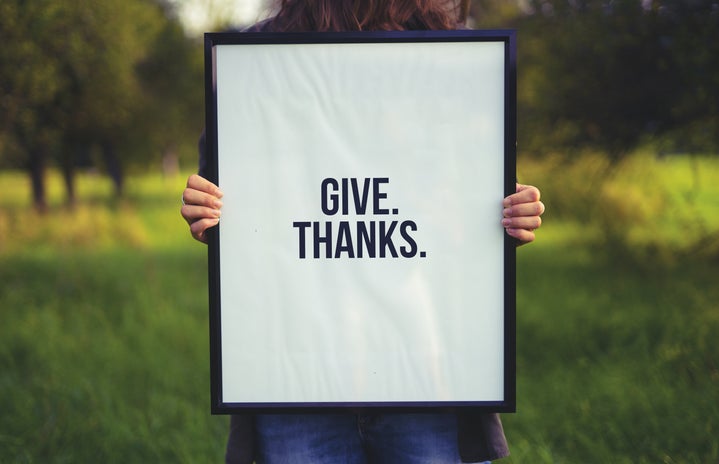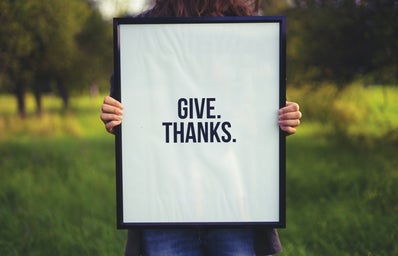Now that Halloween has passed, many are looking forward to the wintry holidays of Christmas, Hanukkah, and Kwanzaa. It seems that Thanksgiving, right in between the October and December celebrations, is like the forgotten middle child of the holidays and I believe that its importance should not be overlooked. Not only does it involve delicious food, but it is also based on the expression of gratitude, which can improve one’s health, relationships, and overall life satisfaction.
The First Thanksgiving refers to the feast enjoyed by Pilgrim settlers and American Indians in the autumn of 1621, following a particularly bountiful harvest. Around the time of the feast, the devout settlers gave thanks to God for their meal and their new life in North America. Although it didn’t become an annual tradition right away, the practice of expressing gratitude was incorporated into American culture and has endured for centuries.
This tradition is an important one because, as it turns out, gratitude can actually improve one’s satisfaction. It has been proven that gratitude helps people feel more positive emotions, enjoy good experiences, and work through difficult obstacles. In one study shared via Harvard Health, participants were split into three groups that all journaled weekly. One group was assigned to write about things that week for which they were thankful, while another group wrote about things that had displeased them, and finally, the last group simply wrote about events in their lives. By the end of the 10 weeks, the group that had expressed gratitude reported increased happiness and life satisfaction.
Gratitude can also improve one’s relationships with others. One study found that when managers frequently thank their employees, the employees are more motivated to work and perform better than before. Another found that couples who express gratitude for their partner felt more positively about their partner and more secure in the relationship overall. Clearly, giving and receiving thanks makes us feel better about others and ourselves.
There are many ways to express gratitude at Thanksgiving. Many are fairly common and widespread, such as saying grace and giving thanks with loved ones. But there are also some more creative and unique ways that families can give thanks together. For example, The Today Show suggests that family members write something they are grateful for on a piece of paper and put the paper in a “blessing jar” that is read aloud at Thanksgiving dinner. The jar can stay open throughout the month of November or even throughout the entire year, and if everyone participates by frequently putting papers in the jar, it will be sure to be full by Thanksgiving.
Other ideas for Thanksgiving gratitude activities include a Thanksgiving show and tell, in which each person presents an item or picture that represents what they’re grateful for, and creating a Thanksgiving scrapbook that families can contribute to each year and look back on.
Practicing gratitude should not be limited to just Thanksgiving; it should take place all year long. The simplest way to express appreciation towards others is to simply say “thank you”. There are plenty of non-spoken ways as well. You could write a thank-you note, give a gratitude gift, or show that you care by actively checking in with and listening to your loved ones. If you would prefer to express your gratitude inwardly rather than outwardly, you can keep a gratitude journal, practice gratitude meditation, or even just mentally count your blessings.
So this year, give special attention to Thanksgiving. Whether you are going home for the holidays or staying near your college, remember what you are thankful for and be sure to express it to yourself or others.


